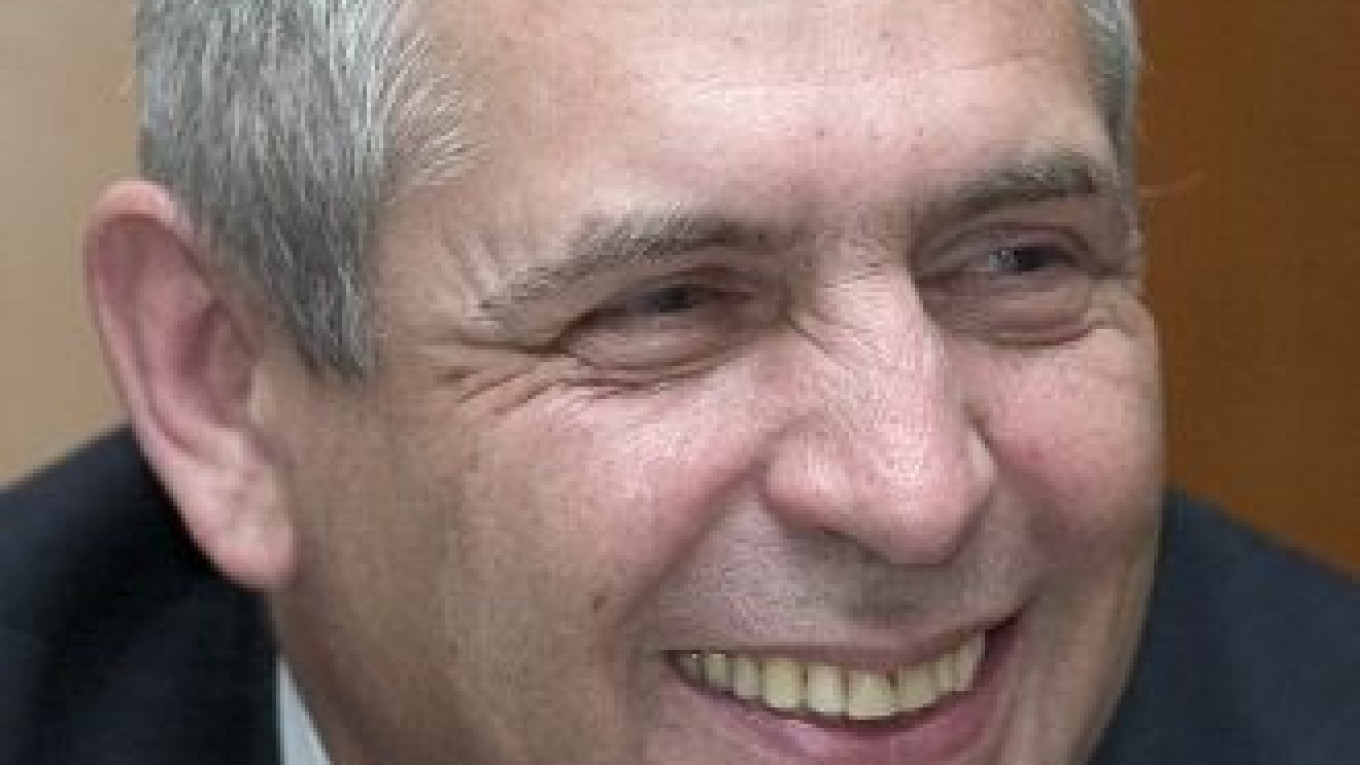Russia's rising budget spending — likely to be exacerbated by 2011-12 elections — will make tax hikes unavoidable, with value added tax likely to be raised first, Deputy Finance Minister Sergei Shatalov said in an interview.
Russia delayed some tax hikes during the crisis of 2008-09, as the government kept spending high in a bid to drag the economy out of recession, plunging its finances into the red after a decade of budget surpluses.
But with the economy now back on track, the social security levy is set to rise from Jan. 1 despite protests from business, and, according to Shatalov, further tax increases will follow.
"We are on the trajectory of tax increases … In order not to slow down economic growth, the most sensible thing is to increase indirect taxes: VAT, excise duties," he said. "If we are not able to cut spending, and are once again forced to increase revenues, then VAT, in my view, is the No. 1 candidate."
Russia's maximum VAT rate is set at 18 percent, although some goods are exempt and others subject to a lower levy. The duty accounts for about 30 percent of budget revenues, making it the second source of state cash after the oil and gas sector.
The budget sees spending of 10.7 trillion rubles ($339 billion) in 2011, against revenues of 8.8 trillion, but Shatalov said the figures do not include many already announced projects in areas such as defense.
Analysts are also concerned that voter-friendly policies ahead of parliamentary elections in 2011 and presidential polls in 2012 could pump up the spending figures.
"It is perfectly clear that before elections there are various 'presents,' which also cost money," Shatalov said. "We think spending is already excessive. However, if political decisions are taken, we will inevitably be faced with the question of which taxes to raise."
In addition to higher VAT, he estimated that Russia could raise up to an extra 100 billion rubles by increasing the excise duty on strong alcohol. Such a move could prove unpopular with the public, but would fit in with President Dmitry Medvedev's drive to wean Russians off excessive vodka drinking.
The already high pace of duty increases on tobacco means that there is little room left to get more cash out of that particular area, Shatalov said.
Higher mineral extraction duty on gas could be used to add "tens of billions of rubles extra, but not hundreds," he added.
He also dismissed the idea of increasing the income tax from the current 13 percent.
"I do not think the income tax should be moved … This tax is very important for business, for how it develops in Russia, for investment," Shatalov said.
Russia will carefully monitor the impact of the planned hike in social security tax to 34 percent from 26 percent, which some fear could send small businesses underground.
"We have a very serious risk next year," Shatalov said, adding that Moscow would be ready to act if it saw a strong negative impact on business from the tax hike.
Medvedev has promised a grace period for some companies, which Shatalov said could end up costing the budget some 60 billion rubles a year — higher than originally thought.
The finance ministry also hopes to reach an agreement this week with other government bodies on 2011 duty for oil products, which are set as a percentage of the export taxes on crude oil.
"For us it is key to reduce the differential [between oil and oil products duties] … If we are unable to do it from Jan. 1, then we will move from Feb. 1," Shatalov said. "As a working plan: the maintenance of the oil export duty at the current level and the increase in the oil products level on average against the basket to 73 percent [in 2011]. There is also an option when we cut the oil export duty and increase the duties on oil products even more in absolute terms. As yet there is no answer which plan is better."
He added that, if the oil products duty is indeed raised to 85-90 percent — as proposed by the Finance Ministry and opposed by the Energy Ministry — the process will take several years.
Russia levies 72 percent of crude oil export fees on light oil products and 39 percent on heavy ones, resulting in an overall burden for the sector of about 55 percent.


